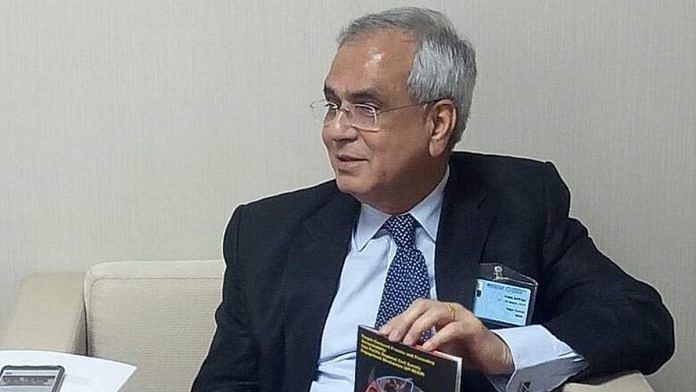New Delhi: Government think tank Niti Aayog on Friday will hold a consultative meeting to discuss a roadmap for population stabilisation and come out with a working paper to address key gaps in India’s family planning programmes.
Increasing the basket of contraceptive choices and helping women make informed choices about delaying pregnancy are among the key recommendations expected to emerge from the meeting, the Aayog said in a release.
The meeting, which is being organised in partnership with Population Foundation of India (PFI), will deliberate on ways and means of strengthening India’s population policy and family planning programmes.
Niti Aayog Vice Chairman Rajiv Kumar told PTI, “This is just a consultation. Niti is preparing a working paper as part of its vision 2035.”
The Aayog said that India is at a stage where birth rates are falling but the population continues to grow due to the fact that more than 30 per cent of the population is young and in the reproductive age group.
“Nearly 30 million currently married women in the age group of 15-49 years within this critical cohort of young people have unmet needs in family planning, which limit their ability to delay or avoid pregnancy by not having access or the agency to use contraception,” it said.
The think tank said that the recommendations from the consultation will contribute to a Niti Aayog working paper to help achieve India’s vision of attaining population stabilisation, as voiced by Prime Minister Narendra Modi on August 15, 2019.
Also read: RSS affiliate calls Modi disinvestment plans anti-India, blames NITI Aayog consultants
India, with a current population size of 1.37 billion, has the second largest population in the world, the Aayog said, adding that for the country to realise its sustainable development goals and economic aspirations, it is important to ensure that people have informed access to contraception and quality family planning services.
Some key recommendations expected to emerge from the meeting are “increasing the basket of contraceptive choices, with greater focus on spacing methods and helping women make informed choices about delaying pregnancy and spacing between children”.
The working paper, the Aayog said, is expected to address key gaps in India’s family planning programmes and will offer constructive recommendations to address regional disparities in outcomes by focusing on adolescents and youths, inter-departmental convergence, demand generation, access to contraceptive services and quality of care.
Stating that family planning is considered universally as the smartest development investment, the Aayog said that some of the key recommendations expected to emerge from the meeting include addressing social determinants of health such as age at marriage and sex-selective practices.
The Aayog also expects that other key recommendations expected to emerge from the meeting include treating population stabilisation and family planning as a national priority, fostering inter-departmental convergence and ensuring multi-sectoral participation and integration.
The meeting will also discuss about existing socio-cultural barriers towards contraception by investing extensively in innovative behaviour-change communication strategies.
Also read: Niti Aayog VC Rajiv Kumar says linking Citizenship Act to NRC is ‘most unfortunate’






